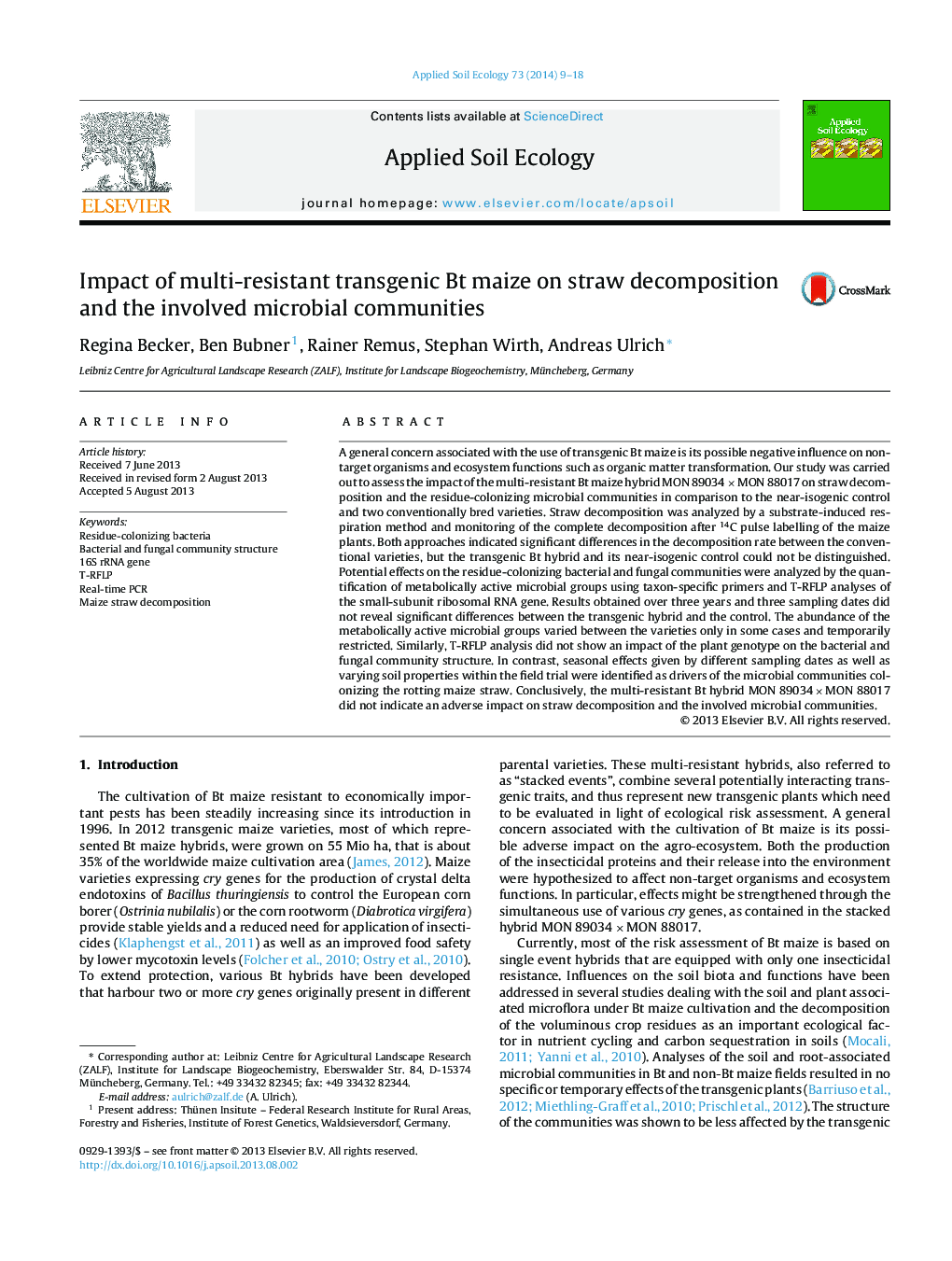| کد مقاله | کد نشریه | سال انتشار | مقاله انگلیسی | نسخه تمام متن |
|---|---|---|---|---|
| 4382361 | 1617810 | 2014 | 10 صفحه PDF | دانلود رایگان |
• Combined analysis of straw decomposition and the involved microbial communities.
• Straw decomposition measured by short-term respiration and 14C pulse-labelling.
• Focus on the metabolically active bacterial and fungal communities.
• Use of taxon-specific real-time PCR and T-RFLP analyses of the small-subunit rRNA.
• Stacked Bt maize did not cause changes in decomposition and the involved microflora.
A general concern associated with the use of transgenic Bt maize is its possible negative influence on non-target organisms and ecosystem functions such as organic matter transformation. Our study was carried out to assess the impact of the multi-resistant Bt maize hybrid MON 89034 × MON 88017 on straw decomposition and the residue-colonizing microbial communities in comparison to the near-isogenic control and two conventionally bred varieties. Straw decomposition was analyzed by a substrate-induced respiration method and monitoring of the complete decomposition after 14C pulse labelling of the maize plants. Both approaches indicated significant differences in the decomposition rate between the conventional varieties, but the transgenic Bt hybrid and its near-isogenic control could not be distinguished. Potential effects on the residue-colonizing bacterial and fungal communities were analyzed by the quantification of metabolically active microbial groups using taxon-specific primers and T-RFLP analyses of the small-subunit ribosomal RNA gene. Results obtained over three years and three sampling dates did not reveal significant differences between the transgenic hybrid and the control. The abundance of the metabolically active microbial groups varied between the varieties only in some cases and temporarily restricted. Similarly, T-RFLP analysis did not show an impact of the plant genotype on the bacterial and fungal community structure. In contrast, seasonal effects given by different sampling dates as well as varying soil properties within the field trial were identified as drivers of the microbial communities colonizing the rotting maize straw. Conclusively, the multi-resistant Bt hybrid MON 89034 × MON 88017 did not indicate an adverse impact on straw decomposition and the involved microbial communities.
Journal: Applied Soil Ecology - Volume 73, January 2014, Pages 9–18
